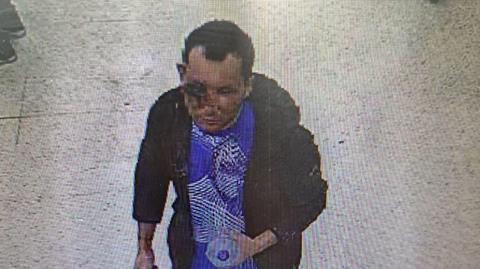Despite Suella Braverman’s claims, the Church is not to blame for Abdul Ezedi remaining in the UK, says Evan L John. It’s a broken system that deports vulnerable Christians and allows violent criminals to remain. MPs should stop slinging mud and work out how to make assessments safer

When it was revealed that the alleged perpetrator of the heinous chemical attacks in Clapham, Abdul Ezedi, had been granted asylum in the UK on grounds of a supposed religious conversion, the response was predictable. It did not take long for commentators - many of them currently in Government - to find an obvious scapegoat.
Writing for The Telegraph, Suella Braverman accused the Church of “facilitating industrial-scale bogus asylum claims”. Former immigration minister, Robert Jenrick MP, told The Express that “naive” vicars were helping asylum seekers to “game” the system.
One asylum seeker was asked, as proof of their Christian faith, if they knew how to cook a Christmas turkey
The paper also reported that Marco Longhi MP planned to ask Most Rev Justin Welby, Archbishop of Canterbury, to appear before the powerful Commons Home Affairs Select Committee to explain the church’s role in “illegal migrant outrages”.
The same politicians who routinely criticise Welby for interfering in politics are now trying to interfere in the Church. But it is never for people in positions of power to tell us who we should and should not welcome into our congregations.
Taking responsibility
It should be clear that the responsibility for this horrific attack lies with the authorities who did not deport a man guilty of a violent crime. The idea that every vicar and volunteer, maybe even every member of a congregation, should act as unpaid Government functionaries, assessing on-the-spot asylum cases that the Home Office take months to rule on, is not just ludicrous, it is sinister.
Braverman paints the picture of a system that is set up to dole out asylum status automatically to anyone claiming to be a Christian: “Attend Mass once a week for a few months… bingo, you’ll be signed off by a member of the clergy that you’re now a God-fearing Christian.” But despite her accusations, Christian converts rarely get an easy ride through Britain’s asylum system.
Trivia
When faced with the task of assessing whether someone has genuinely converted to Christianity, some officials resort to “Bible trivia” as one report put it. According to the All-Party Parliamentary Group for International Freedom of Religion or Belief, examples of questions asked by officials include: “How many books are there in the Bible?” and “How many chapters are there in the Gospel of John?”
One civil servant even asked an Iranian asylum seeker in my church whether, as proof of their Christian faith, they knew how to cook a Christmas turkey.
And the answers asylum seekers give to these meaningless, pub-quiz-style questions matter. One Christian woman from a Muslim background was denied asylum on the basis that she could not recite the Lord’s Prayer and did not know the number of books in the New Testament.
A broken system
The asylum system is broken - but not in the way some would have us believe. In the case of the Clapham attacks, it is clear that it did not do enough to protect the public from a violent criminal living in the UK. That is something that should be investigated and addressed.
But we cannot use this tragic case to make it harder for people to claim asylum because of religious persecution.
In the past few days, commentators have focused on the claims of people who have faked a religious conversion. Yet we must remember the extremely serious consequences of wrongly rejecting the asylum claims of genuine converts.
The asylum system is broken - but not in the way some would have us believe
The APPG report is clear that a “lack of understanding of religion and belief” leads to assessments that are “too simplistic” to judge genuine conversion. Problems with translators, a lack of clear data, issues with staff conduct, lack of training and religious illiteracy abound.
With the rise in religious persecution worldwide and ongoing conflict in places such as Syria, Nigeria and Iraq, “the number of individuals seeking asylum on the grounds of religious persecution is not going to diminish in the coming years,” concludes the report. Therefore this is an issue that “we must grapple with and equip ourselves to fully understand so as to ensure fair hearing of cases.”
If we do not, the only victims will be the genuine converts that our asylum system turns away - and we may very well be sending them to their deaths.




































1 Reader's comment